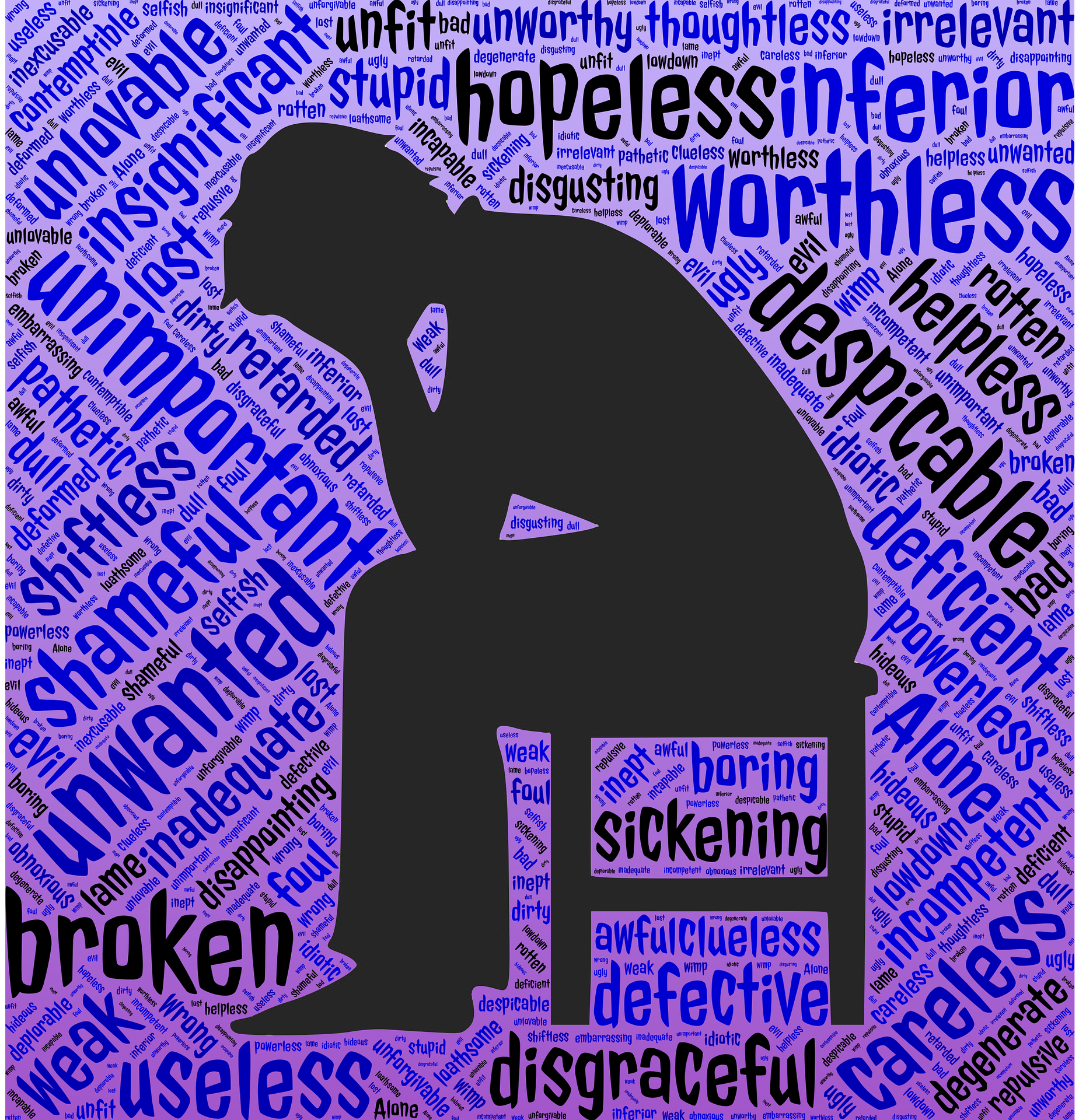
I’m not important. I’m not of value. I’m not worthy. I can’t do anything right. I’m a failure. I’m not good enough.
Sound familiar?
This is how many men feel about themselves. It is common for men to feel inadequate.
Men are pressured at young age to adhere to masculine norms: to compete – and to win – to get the house, career, family, and to be stoic while achieving these goals.

Add to this are the challenging words we hear, and behaviours we experience, from our parents, family, coaches, teachers that are used towards us – sometimes hurtful and often having long-term impacts on our emotional well-being.
We hear words such as “You can do better than that. Be a man. Quit crying. Don’t be a baby. Toughen up. Man up. Don’t be a loser. You should…” And we witnessed the adult men in our lives modelling these behaviours.
We feel judged and pressured.
We are not good enough unless we do X, until we achieve Y.
These words and their associated feelings become what we believe about ourselves.
They are the words and stories that we tell ourselves when we are faced with a difficult decision or challenging situation.
It becomes our default way of thinking and ingrained as part of our identity.
We can feel lost, frustrated, agitated, angry, desperate and begin to despair. We feel we don’t measure up, we’re not successful, or we’re inadequate.
For many men, myself included, even when we achieve many of the masculine norms there is still a gaping hole in our self-esteem.
As a result we turn to external validation to help us feel better. We become people pleasers, avoiding conflict and attempt to live up to others expectations. When in reality much of what we’re feeling is a result of the words we tell ourselves.
Most often these words are irrational.

Irrational words and thoughts can be defined as not helpful, or they don’t make sense, or they’re don’t help us towards our goals/dreams or a better version of ourselves.
The escape from our self-inflicted feelings of inadequacy lies in changing the words and stories we tell our selves.
We can change our feelings of inadequacy to ones of adequacy and of being enough.
We begin the change by thinking and speaking rationally. Rational words and phrases are ones that make sense, or are helpful, or help us towards a better version of ourselves.
We are in control of changing our irrational thoughts and words to ones that are rational.
- I am not worthy –> I have value.
- I am stupid —> I am learning.
- I’m a loser, failure –> I failed at one task. I am human.
- I should… –> I could, I choose to.
- I can’t –> It might/will be difficult
- I have to –> I want to, I get to, I choose to.
- I must –> I prefer.
Here is a simple a five-step process to help change self-talk from irrational to rational.
- Be aware when you’re feeling inadequate.
- Take note of the irrational words you are using to describe yourself.
- Make a mental note of replacing irrational words to ones that are rational.
- Practice rational self-talk.
- Repeat.
This simple practice can yield powerful results. It did for me.
When we change irrational words to ones that are rational, we begin to change how we feel about ourselves.
Lasting change won’t happen overnight. But with practice, patience and persistence, we can re-write the story we tell ourselves.
Each of us has a unique set of life experiences that have helped define who we are and how we feel about ourselves.
But we all have things in common. Many men share similar pain and feelings of inadequacy.
There is hope for something better.
My story about myself began to change for the better when I understood:
- I am self-empowered.
- I have the ability to change my story to one that was more positive.
- I can choose to feel adequate and worthy.
I began by changing my words and thoughts from irrational to rational.
I have the power. I have the choice. So do you.
Make better choices and create a better life.
 I write to inspire others to greater self-empowerment, authenticity, and improved emotional and mental well-being.
I write to inspire others to greater self-empowerment, authenticity, and improved emotional and mental well-being.
I am the author of the unique personal development novel The Shift Squad.
If you like what you read please subscribe for updates, share my articles with others, and add your comments below.
You can connect with me via email at [email protected] , on Facebook, Twitter, and LinkedIn.
Be Empowered. Make Authentic Choices And Enhance Your Quality Of Life.


Loved this 🙂 Thanks for sharing Rick.
•I am self-empowered.
•I have the ability to change my story to one that was more positive.
•I can choose to feel adequate and worthy.
Hope all is well with you!